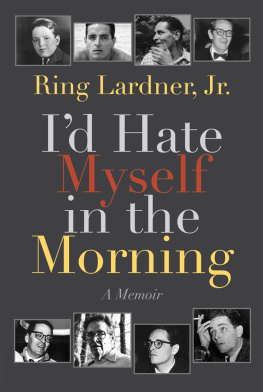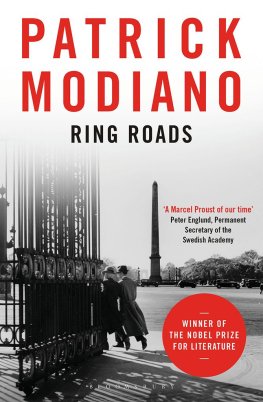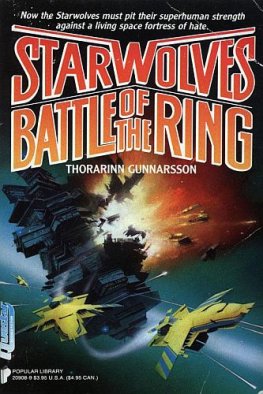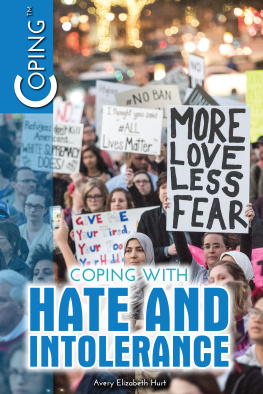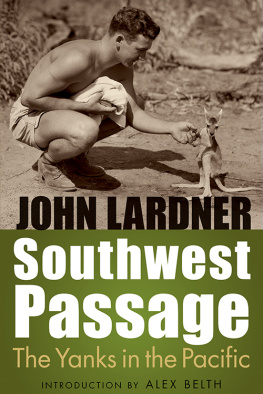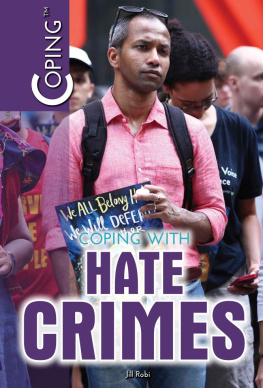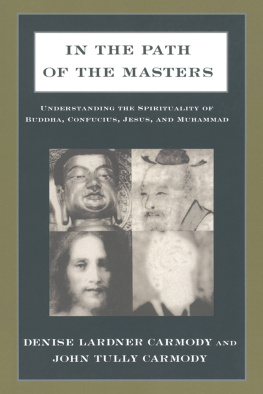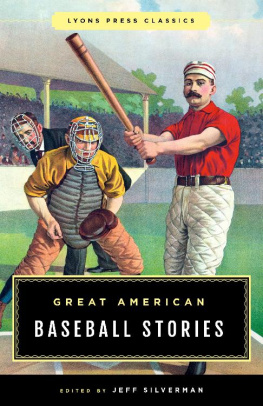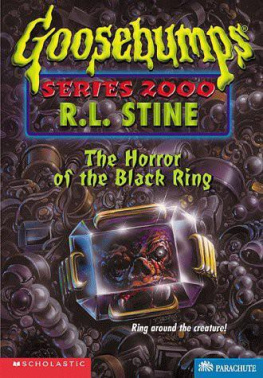Lardner Ring - Id Hate Myself in the Morning
Here you can read online Lardner Ring - Id Hate Myself in the Morning full text of the book (entire story) in english for free. Download pdf and epub, get meaning, cover and reviews about this ebook. year: 2017, publisher: Easton Studio Press, LLC, genre: Non-fiction. Description of the work, (preface) as well as reviews are available. Best literature library LitArk.com created for fans of good reading and offers a wide selection of genres:
Romance novel
Science fiction
Adventure
Detective
Science
History
Home and family
Prose
Art
Politics
Computer
Non-fiction
Religion
Business
Children
Humor
Choose a favorite category and find really read worthwhile books. Enjoy immersion in the world of imagination, feel the emotions of the characters or learn something new for yourself, make an fascinating discovery.
- Book:Id Hate Myself in the Morning
- Author:
- Publisher:Easton Studio Press, LLC
- Genre:
- Year:2017
- Rating:4 / 5
- Favourites:Add to favourites
- Your mark:
- 80
- 1
- 2
- 3
- 4
- 5
Id Hate Myself in the Morning: summary, description and annotation
We offer to read an annotation, description, summary or preface (depends on what the author of the book "Id Hate Myself in the Morning" wrote himself). If you haven't found the necessary information about the book — write in the comments, we will try to find it.
Id Hate Myself in the Morning — read online for free the complete book (whole text) full work
Below is the text of the book, divided by pages. System saving the place of the last page read, allows you to conveniently read the book "Id Hate Myself in the Morning" online for free, without having to search again every time where you left off. Put a bookmark, and you can go to the page where you finished reading at any time.
Font size:
Interval:
Bookmark:

The last living member of the Hollywood Ten, until his death in October [2000], articulates the cultural history of his own time as a screenwriter, Communist, and martyr to the blacklist.
New York Times
Lardners breezy, engaging memoir [is] a story filled with enchanting details.
Time
[A] new generation of film buffs will be charmed by Lardners wit and unpretentiousness.
Publishers Weekly
Bracing prose, [and a] wealth of cinematic lore and insights into the screenwriting trade.
San Francisco Chronicle
Lardners invaluable memoir bravely illuminates the realities of the movie business before and after the blacklist without a moment of self-pity or righteous indignation.
Entertainment Weekly
Fascinating.
Carolyn See, Washington Post
Irresistibly readable.
The New Yorker
One of the shining talents of Hollywood screenwriting... Lardner covers those dark days in a deft, readable style... without rancor or rage.
Hollywood Reporter
My thanks to Amanda Urban. I also want to express my gratitude to Tom Engelhardt for his superior editing; to my daughter Kate, for moral and other support when I became ill and had difficulty working on the book; and to my son Jim, who under the same circumstances made an invaluable contribution to its final form and content.
Ring Lardner, Jr.
F rances Chaney, Ring Lardner, Jr.s actress-wife, doesnt believe in speaking to informers. So one day in the mid-60s when Rings old Hollywood chum, the writer Budd Schulberg, encountered the Lardners at Sardis restaurant, he had to be nonplussed. While Frances turned her back on him, Ring, whom Budd recruited into the Communist Party in the 1930s, and named as a Communist before the House Committee on Un-American Activities (popularly known as HUAC) in the 1950s, put out his hand and gave a friendly hello.
When I asked Lardner about this some years later he simply said, I dont believe in blacklisting. He is, one might say, recrimination-challenged and this lack of bitterness or score-settling adds to the air of authenticity which permeates this memoir of a modest man.
Ring Lardner, Jr., along with the late Dalton Trumbo, is probably the most famous member of the original Hollywood Ten, also known as the unfriendly ten, who went to prison for contempt of Congress when they refused to answer what was then known as the $64,000 question: Are you now or have you ever been a member of the Communist Party? He is famous because of his eponymous father, the great American sportswriter and humorist, and for his films, two of which won Academy Awards for best screenplaythe Katharine Hepburn/Spencer Tracy vehicle Woman of the Year in 1942, and in 1970, after fifteen years on the blacklist, M*A*S*H , the hilarious noir comedy about life among the medics during the Korean War.
But among the political cognoscenti he was famous for the line which gives this book its title. One never knows what one would do if given the choice by an inquisitorial investigating Committee of either betraying ones beliefs and (former) comrades or losing ones livelihood. Lardners response, for my money, met the Hemingway definition of courage, grace under pressure. As he told Committee Chair J. Parnell Thomas, I could answer your question sir, but I would hate myself in the morning. Not since Ring Lardner, Sr.s Shut up, he explained has there been a better line.
The Hollywood Ten collectively are important because they resisted McCarthyism at an historically critical moment before the Senator himself came on the scene. Their hearing was in 1947 and McCarthy made his famous Wheeling, West Virginia, speech about Communists in the State Department in 1951. Trumbo and Lardner also showed that it is possible to resist and prevail. At the time, of course, their action sent a very different messagethat in the overheated context of the domestic cold war, imprisonment could be the price one paid for exercising First Amendment rights. (The Ten declined to answer HUACs questions on First Amendment grounds, but most subsequent non-cooperating witnesses before HUAC and other congressional interrogators, learning from the Tens example, invoked the Fifth Amendments protection against self-incrimination and stayed out of jail, but not off the blacklist.)
Lardner calls his last chapter Sole Survivor. And he is indeed the last of a family of four boys and a famous father; the last surviving member of the Hollywood Ten; and if not the sole, he seems to be one of a handful of the survivors of an era in which people willing to go to prison for their beliefs were largely wiped out of social, cultural and political lifeand so, in a sense, of our history. Much has been written of the Hemingway/Fitzgerald cohort who went to Europe in the 1920s as a lost generation, but Lardners memoir should remind us that he and his peers, not just the directors, screenwriters and other movie workers in Hollywood, but the librarians, teachers, scientists, defense workers, diplomats, union organizers, and all those who lost out in the great red purge of the 1940s and 1950s were our real lost generation.
The cultural costs of McCarthyism have never been, perhaps cannot be, computed. How do you count, no less put a political, cultural or even commercial value on plays and screenplays unwritten, careers not undertaken or cut off at birth, families and psyches smashed from the pressures of uncertainty compounded by the realities of unemployment? How to quantify the cost of inventions not invented, ideas not explored, hypotheses untested. Television itself was born, shaped and came of age in the context of McCarthy era assumptions, when a crazed grocer in Syracuse, who maintained a list of suspected Reds, held sway over prime-time employment decisions. Who is to say what contribution the great red scare made to the bland and timid television culture which prevails to this day?
Though these may not be the questions that preoccupy Ring Lardner, Jr., in this memoir, through it he offers us a very personal way to consider them anew. At the time he appeared in front of HUAC, he was gaveled down by J. Parnell Thomas before he could finish his statement. The full statement, printed in this book, is eloquent, but the book itself, this tale of life as a Hollywood communist offers the real answer to the Committees question. That is the red meat, as it were, of a thoroughly unapologetic memoir by a man without many illusions.
Lardner makes clear that far from being glamorous, life as a Hollywood comrade was often time-consuming, boring and repetitious. Only occasionally did ideology enter the picture. Thus Lardner recommended to David O. Selznick that he not acquire Gone With the Wind because I objected on political grounds to the glorification of slave owners and the Ku Klux Klan. Given the shortage of US Communists today, what is truly weird about this account of life just before, during and after the anti-Communist hysteria which dominated the political culture in the 1940s and 1950s, is its contemporary resonance. It is almost as if confronted with the absence of a 21st century Red Menace, a new generation of postcold war would-be red baiters decided to rehabilitate the old one. These anti-anti-anti-communistsciting both a cache of recently released cables between Moscow and its agents in this country that were intercepted during World War II; and also selectively leaked documents from KGB archives seem to argue that, in effect, McCarthy & Co. were right all along: That the new documents reveal that American did indeed suffer from an internal red menace, that Washington was a nest of spies, that those, like the late editor of The Nation , Carey McWilliams, who called the old congressional investigations a witchhunt, were either fools or knaves deploying a misleading or misinformed metaphor. There were no witches in Salem but there were indeed Communists in Washington.
Font size:
Interval:
Bookmark:
Similar books «Id Hate Myself in the Morning»
Look at similar books to Id Hate Myself in the Morning. We have selected literature similar in name and meaning in the hope of providing readers with more options to find new, interesting, not yet read works.
Discussion, reviews of the book Id Hate Myself in the Morning and just readers' own opinions. Leave your comments, write what you think about the work, its meaning or the main characters. Specify what exactly you liked and what you didn't like, and why you think so.

